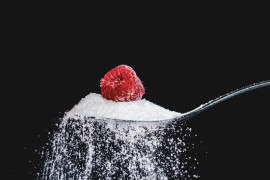"Production last year was only 400 thousand tons, and this year, it is expected to drop further by 10 percent. Last years production was affected by the El Nino phenomenon, while this year, heavy rainfall can lead to a 10 percent drop in production compared to last year," AIKI Executive Director Sindra Wijaya noted in Jakarta on Thursday.
Sindra noted that the declining production will disadvantage the domestic cocoa bean processing industries that currently have an installed production capacity of 800 thousand tons. Hence, they are utilizing only some 50 percent of their capacity.
The AIKI executive director said the organization hoped the government would increase production to meet the requirements of the industries. The government has launched a national cocoa movement program, with a budget allocation of Rp1 trillion per annum.
"However, this year, the budget was reduced to Rp235 billion. We are concerned as production declines while its budget is also reduced," Sindra pointed out.
Sindra said barriers are encountered while importing cacao beans needed for the countrys industry. A agriculture ministers decree is in place on food security supervision regarding the import and export of plantation-based fresh food commodities.
The AIKI executive director explained that with the decree, laboratory tests are conducted in the states of origin, including the examination of cocoa beans. However, most of the cocoa beans are imported from the Ivory Coast and Ghana that fail to meet the technical requirements as they have no adequate laboratories.
"The requirement is suitable for fruits and vegetables as they would be consumed directly, so they should be supervised tightly to spot contamination by chemicals or microbiological substances," the AIKI executive director stated.
However, the case of cocoa beans is different, which is a raw material for industries. Cocoa beans need to be sterilized and have to undergo a lengthy process at home. Hence, the requirements set for cocoa beans should be different from those for fruits and vegetables.
"Based on our request, the Ministry of Industry is finally ready to relax the regulation. We heard that it has been revised but is still awaiting the signature of the agriculture minister," Sindra noted.
Some 109 thousand tons of imported cocoa beans were used by the industry in 2014. The figure dropped to 53 thousand tons in 2015. Until June this year, only 18 thousand tons were imported.
Indonesia is the worlds third-largest cocoa producer after the Ivory Coast and Ghana. The United States and Europe are among the top export markets for cocoa. Cocoa powder is exported to countries, such as Malaysia, Thailand, China, India, and Japan, in the Asia-Pacific region.(*)
Editor: Heru Purwanto
Copyright © ANTARA 2016











